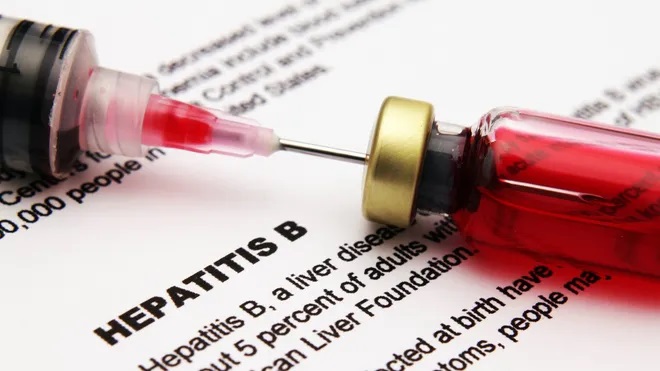
24, Jul 2022
Hepatitis — a disease that causes inflammation of the liver — is a global epidemic affecting millions of people around the world.
World Hepatitis Day on July 28 gives us an excellent opportunity to increase awareness and understanding that viral hepatitis is preventable.
But as many infections with a hepatitis virus do not show symptoms, the so-called "silent disease" often goes undiagnosed.
Almost 90% of the people who have contracted hepatitis do not realize they are infected with it.
Although the vast majority of those with acute infection fully recover after a few weeks, many infected persons eventually develop chronic infections.
If untreated, chronic infection with hepatitis B and C may progress to sometimes fatal liver diseases such as liver cirrhosis or cancer.
There are five known hepatitis viruses — types A, B, C, D and E.
They can cause acute infection.
Hepatitis B and C also can cause chronic liver disease.
Infection with the hepatitis A virus is caused by the consumption of contaminated food or water, thereby causing an acute infection.
Hepatitis B and C usually occur due to contact with infected blood or body fluids and can develop into a life-threatening chronic infection.
Hepatitis can affect people in places with little information about the impact of unsafe sexual practices or drug abuse.
Hepatitis B can also be transmitted from mother to baby, which is why pregnant women should be tested.
Over the last hundred years, there's been considerable progress in preventing and treating hepatitis.
There are vaccines available for both hepatitis A and B, providing effective individual prevention measures and a high level of protection.
Since hepatitis D infection only occurs in people infected with hepatitis B, getting the vaccine against B should protect against hepatitis D.
Currently, no vaccine is available for hepatitis C, but research is ongoing.
Prevention thus depends on actively reducing the risk of exposure to the hepatitis C virus.
Hepatitis C is, however, curable when prescribed treatment.
Hepatitis D and E are rare.
There is no FDA-approved vaccine against hepatitis E in the United States.
Sharing needles to take illicit drugs, practicing unprotected sexual encounters, having multiple sexual partners, drinking significant amounts of alcohol, poor nutrition, health care professionals, receiving long-term kidney dialysis and traveling to areas with poor sanitation are some risks of getting hepatitis.
If you are experiencing dark urine or having stomach pain, yellow eyes or skin, low-grade fever, loss of appetite, fatigue, or achy joints, contact your healthcare provider immediately for further evaluation with a blood test that will find out if you have a form of hepatitis caused by a virus.
It is important to assess the disease burden, evaluate prevention strategies, and define transmission patterns to help stop this silent disease.
So, assess your risk and take action!
Ask your doctor and get vaccinated for hepatitis A and B.
Use safe sex practices. Do not share needles to take any drugs. Practice good personal hygiene, including hand washing with soap and water.
Do not share an infected person's items. Drink bottled water when traveling. Take preventive steps if you work in places like nursing homes, daycare centers, or restaurants where you are at risk of contracting the disease.
Dr. Sue Mitra and her staff strive to offer their patients the best care, advice and services available in the medical field with the goal to keep patient healthy & happy.

Dr. Sue Mitra is board certified in international medicine. She is seen here with a Cologuard, which is a noninvasive colon cancer screening test. (Photo by: Tim Shortt/Florida Today)